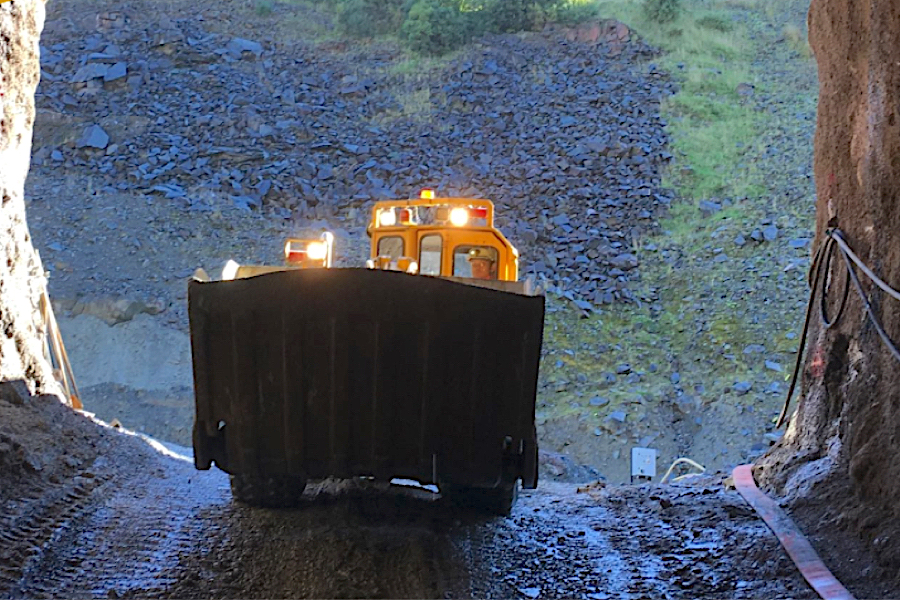Galantas Gold to resume blasting at Irish mine

Canada’s Galantas Gold (TSX, LON:GAL) said on Thursday it was working out details to resume blasting at its Omagh gold mine in Northern Ireland, which has been suspended since October due to lack of required supervision.
Blasting activities were part of Omagh’s underground expansion, which Galantas kicked off in 2017 after the open-pit site run out of ore.
Mining at Omagh remains suspended and the company is mulling strategic alternatives for the operation
Since the end of nationalism-fuelled violence in Northern Ireland in the late nineties, all blasting in the area must be overseen by police. Availability, however, was not sufficient for Galantas’ desired level of operations.
While mining at Omagh remains suspended, the company is now mulling strategic alternatives for the operation. Options include selling the mine, bringing a joint venture partner and seeking third-parties financing, Galantas said as it posted first quarter results.
The Canada-headquartered junior logged a loss of $680,315 for the first three months of 2020. Despite the lack of commercial-scale production, gold concentrate sales helped the miner.
Concentrate sales amounted to $186,000 for the quarter ended March 31, leaving the company with $936,560 in cash.
Mounting deficits
As a result of the challenges faced in Northern Ireland, Galantas’ working capital deficit climbed to $7.29 million in the period, from $2.7 million at the end of 2019.
The company is not the only Canadian miner in Ireland. Toronto-based Dalradian Resources (TSX: DNA) has been working on its proposed gold project in Tyrone since early 2010.
The company has secured mineral rights to more than 80,000 hectares in Northern Ireland. This includes the company’s flagship Curraghinalt gold project outside Gortin, identified as one of the top ten undeveloped gold deposits by grade in the world.
Last month, however, Dalradian learned that its planning application would be the subject of an independent public inquiry.
The original plan, submitted in 2017, was modified last year, dropping the use cyanide as part of extraction process.
Northern Ireland holds the world’s seventh richest resource of gold, but political violence kept most investors away for decades.
{{ commodity.name }}
{{ post.title }}
{{ post.date }}




Comments